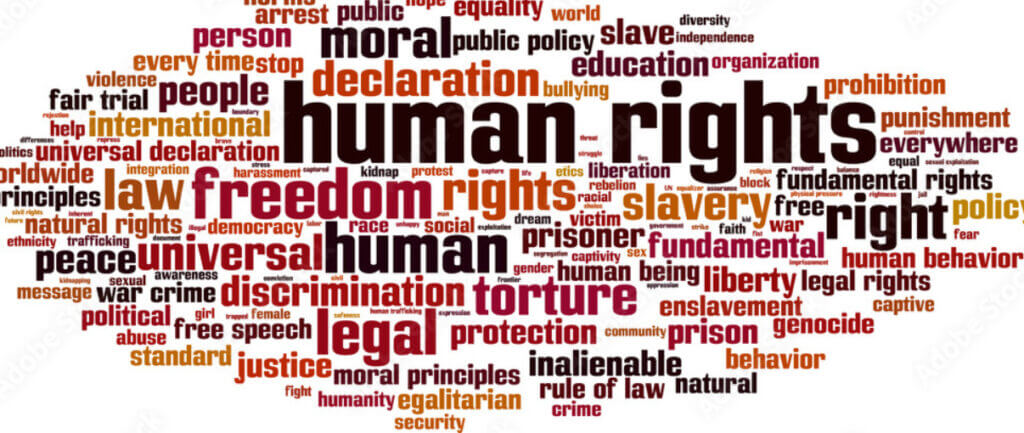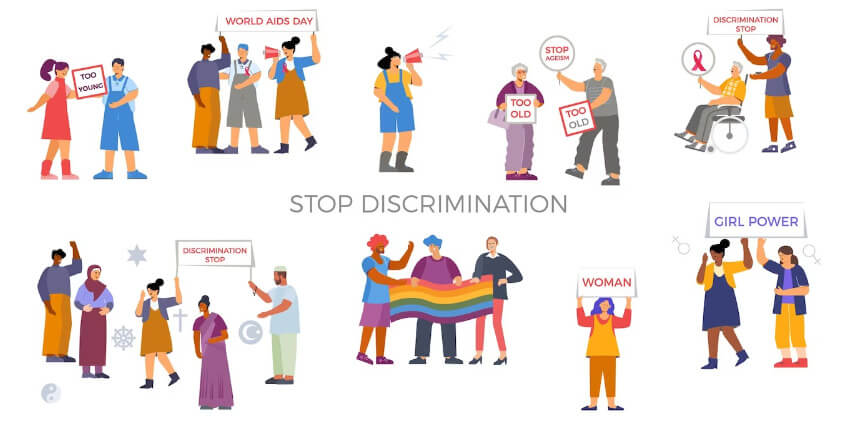Updated February 15, 2023
Human Rights
Human rights are the most well-recognized term of this age. We can call it social, political, economic, and so on. It means the rights guaranteed for all citizens in any country regardless of their position, race, and gender. This essay will discuss human rights and their definitions. I will also discuss the history of human rights and their significance today. This article aims to help students understand what human rights mean and how they differ from other rights protected by law.
What are Human Rights?
The United Nations considers human rights a universal right, and most countries protect them in their constitutions. Furthermore, the UN Human Rights Declaration states that “all human beings are born free and equal in dignity and rights.” Human rights are not a new concept. They have been around for thousands of years, but it was not until recently that they became a central tenet of law.
The French Revolution made the first formal declaration of human rights on August 27th, 1789. The Declaration of the Rights of Man and Citizen included universal rights and civil liberties such as freedom of speech, press, assembly, and religion. The Universal Declaration of Human Rights, adopted by the General Assembly on December 10th, 1948, is one example of how human rights have evolved.
The document emphasizes individual freedoms such as freedom from torture or forced labor but also recognizes the importance of social security systems such as healthcare and education in maintaining human dignity.
Some Basic Human Rights
- The right to free speech.
- The right to free religion.
- The right to privacy.
- The right against self-incrimination.
- The right against unreasonable search and seizure.
- The right against cruel and unusual punishment.
- The right to a fair trial.
When and Why were Human Rights Created?
Human rights reflect our common humanity, the rights that all humans share as members of society. Philosophers such as Plato and Aristotle in ancient Greece and Rome began to question the legitimacy of their rulers, tracing back the idea of human rights. These philosophers argued that laws instead of kings or emperors should rule human beings because everyone is equal in the eyes of God.
Human rights are not new to the world; they have been around since ancient times. Philosophers such as Plato and Aristotle in ancient Greece and Rome began to question the legitimacy of their rulers, tracing back the idea of human rights. In 1649, Thomas Hobbes published his work Leviathan, which includes ideas about human rights later adopted by philosophers such as John Locke and Jean-Jacques Rousseau.
The United Nations brought together representatives from around the world for two days in 1945 to discuss international laws regarding human rights. This meeting led to the adoption of the Universal Declaration on Human Rights (UDHR), which representatives from 51 countries signed on December 10, 1948.
Why are these Rights Important?
Human rights are necessary because they are the foundation of a democratic society. Human rights are what make a person’s life worth living. Without human rights, a person cannot be free and, therefore, cannot be an equal member of society. To be free, a person must have the right to vote, freedom of speech and religion, and other freedoms that allow them to live an active life in society.
Human rights are also necessary because they protect us from tyranny. Tyranny occurs when one person or group has too much power over another person or group. We must protect human rights to fight tyranny and oppression so that everyone can have equal access to these freedoms.
Violation
According to the United Nations, human rights are “the natural and inherent rights of everyone.” In other words, they are inherent to the human condition. Moreover, they are universal, not just for people in one country or another.
Governments infringe upon human rights by violating or failing to respect them. The violation of human rights remains true regardless of whether or not the violation occurs within a legal framework. One can consider it a violation of human rights to fail to enforce laws that comply with international laws and treaties.
Human rights violations include, but are not limited to:
- Violations of free speech.
- Discrimination based on race, ethnicity, and religion.
- Denial of a fair trial.
- Sexual abuse.
- Political imprisonment and torture.
- Other abuses, such as disappearances.
Conclusion – Essay on Human Rights
Essay on Human Rights explains that human rights are essential for everyone, regardless of nationality. A healthy society requires them, and evidence supports their role in developing countries and promoting equality. Nevertheless, we must prioritize human rights and take them seriously to avoid losing our own.


